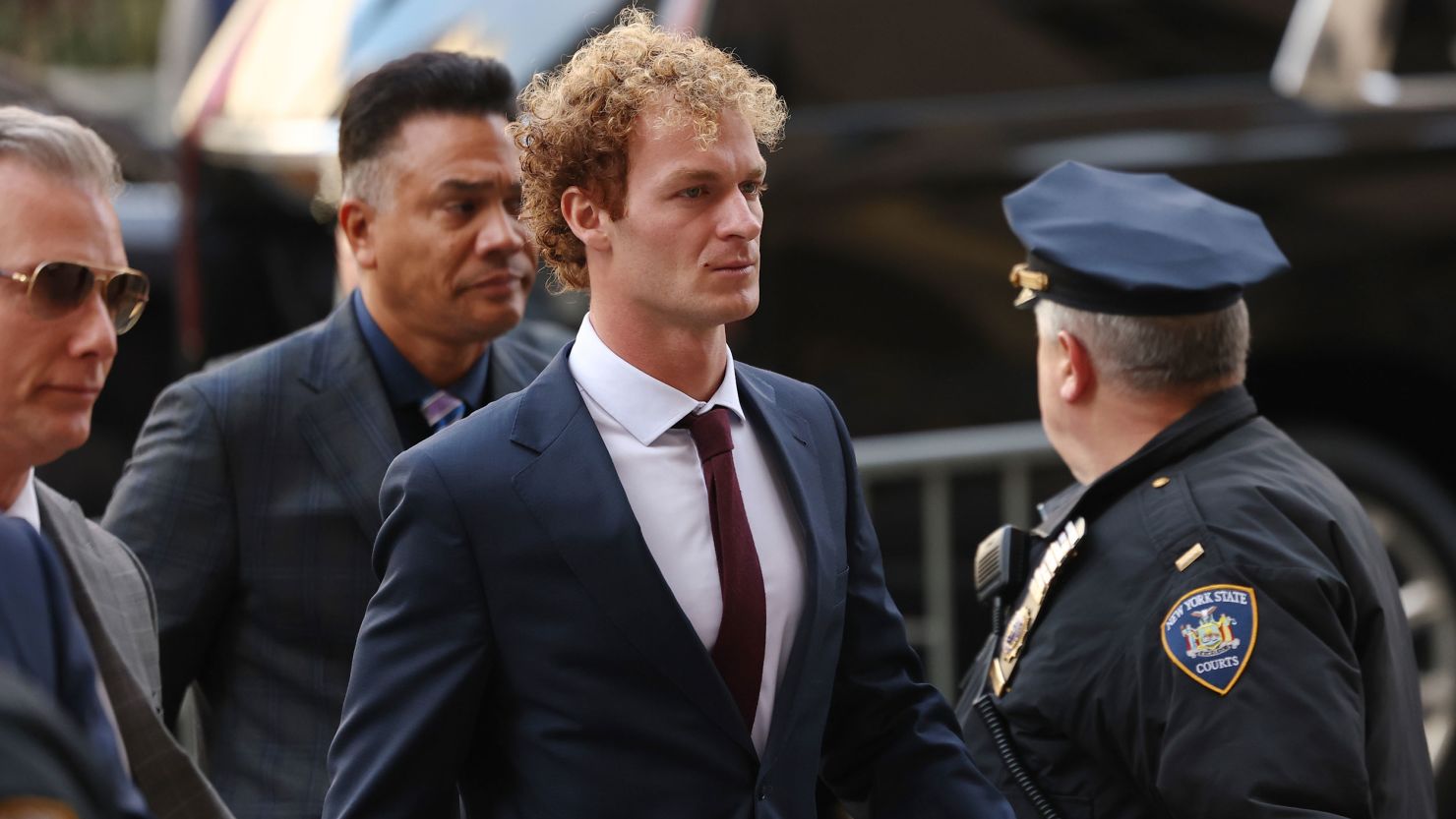
A Manhattan jury began deliberating Tuesday in the manslaughter trial of Daniel Penny , the former Marine charged in the chokehold death of a homeless man on a New York City subway last year. Penny, 26, is facing charges of second-degree manslaughter and criminally negligent homicide in the death of Jordan Neely, a 30-year-old street artist and Michael Jackson impersonator. Neely had entered a New York City subway car in May 2023, yelling at passengers that he was hungry and thirsty and didn’t care whether he died, according to witnesses.
Penny grabbed Neely from behind in a chokehold, forced him to the train floor and restrained him there for several minutes. Prosecutors have said Penny acted recklessly, while his defense has said he was acting to protect others from a threat. Several minutes of the chokehold were captured on bystander video, making it the key piece of evidence in the trial.

The case has polarized NYC residents, many of whom have personal experiences with disorder on the subways, and raised broader questions about mental health, race relations and the line between protector and vigilante. Black Lives Matter protesters have added Neely’s name to its roll call of victims – including just outside the courthouse – while others have praised Penny’s efforts to try to protect others. If convicted, Penny faces up to 15 years in prison on the manslaughter charge or up to four years on the criminally negligent homicide charge, or the judge could choose not to sentence Penny to prison time.
In closing arguments Monday , the defense argued Penny “was justified in the actions he took to protect the other riders.” Neely “was on a collision course with himself” and Penny “acted when others could not,” defense attorney Steven Raiser said during his two-hour closing argument. The defense has also challenged the medical examiner’s determination Neely died from the chokehold and suggested the charges were brought because of “a rush to judgment based on something other than medical science.
” Prosecutor Dafna Yoran, in her closing arguments that lasted more than three hours over two days, said it was admirable Penny intended to protect fellow passengers but “he just didn’t recognize that Jordan Neely’s life too needed to be preserved.” “We are here today because the defendant used way too much force for way too long in way too reckless of a manner,” she said. The prosecutor told jurors self-defense is legally justified on rare occasions.
While Neely might have threatened deadly physical force on the subway, a reasonable person should’ve known he wasn’t capable of carrying out the threat, Yoran argued. Finally, she acknowledged to the jury that this was a difficult case but said Penny must still be held accountable. “This is a hard case.
It’s hard to find someone guilty of a killing that they didn’t intend on,” she said. What happened at the trial The trial began November 1 and has featured testimony, video and 911 calls from subway riders, responding police officers and martial arts and medical experts. The prosecution called more than 30 witnesses to the stand, including one man who helped restrain Neely’s arms during the struggle and testified he advised Penny to loosen his grip.
“I’m going to grab his hands so you can let go,” Eric Gonzalez told Penny, according to his testimony. Further, Gonzalez could be heard in video footage of the incident saying that Penny wasn’t “squeezing” Neely’s neck in the 51 seconds before he released the chokehold. Gonzalez also testified he initially lied to investigators about what he saw and did on the subway out of fear he would be “pinned” for the killing.
Prosecutors promised not to charge him in the case, he testified. In addition, the Marine Corps martial arts expert who trained Penny in chokeholds testified that Penny was aware the holds could be lethal. Several subway riders testified they were terrified Neely was going to attack and that they were relieved when Penny put him in a chokehold and kept him there.
“Restraining him for the moment was a relief, but if he would have gotten up, he would have done what he would have done,” subway rider Caedryn Schrunk said. The defense’s case focused on emphasizing Neely’s threatening behavior, character witnesses from Penny’s time in the US Marines and challenges to the medical cause of Neely’s death. Penny served four years in the Marines as a sergeant, from 2017 to 2021, with his last duty assignment at Camp Lejeune in North Carolina, according to military records.
The city medical examiner who performed Neely’s autopsy, testifying for the prosecution, ruled the cause of his death was “compression of neck (chokehold).” However, the defense presented its own medical expert who said Neely died of a combination of factors, including his sickle cell trait, schizophrenia, the struggle and restraint by Penny and K2 intoxication. The jury also saw video of Penny’s interview with NYPD detectives after Neely’s death.
“I wasn’t trying to injure him,” Penny said in the video. “I’m just trying to keep him from hurting anybody else. He was threatening.
”.














